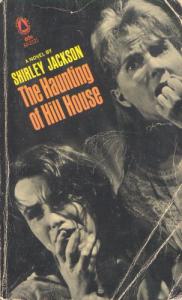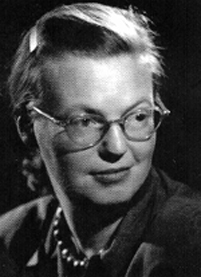When human beings,
or even dinosaurs, fail to deliver consolation in times of doubt, uncertainty,
and maybe even a little despair, there are always libraries.
For instance …
This afternoon, I
needed to get out of the house. It’s been a bad week, in some ways. Not so bad
in others. One part of me wanted to just sit at home, lie on the bed, and
contemplate my misfortune. Luckily, I recognized that doing so never solved
anything. I have a lot of work to do – work that I want to avoid, and still
have to some degree.
And, of course, I
have writing to do as well, which I don’t want to avoid, but I had a hard time
working myself to get any done. I’m in the dumps.
My fall class at
Columbia was canceled.
And this time, I
can’t really blame the administration, the department, or anyone but the
students. They just didn’t sign up.
Not enough of
them. Just nine, I think. And I thank those nine for signing up. And I also
apologize that now there won’t be a course for them to take.
But when you get
ready to put on a show, so to speak, and no one comes, you can’t help feeling
bad. Feeling like a failure. Or an outcast. I have some experience in feeling
like an outcast.
And when you feel
like an outcast, it’s very difficult to motivate yourself to soldier on and
produce new work. Even if you’ve had some relative success, all you can
remember are the failures, the empty rooms, the silence.
So, sitting in
the library, I started writing, then looked around. Who needs any more stories?
I’m surrounded by five thousand books. Who needs to read anything by me? What
the hell do I know? I think science fiction will not only save literature, but
maybe save the world. How dumb can you get? If readers don’t want Tiptree,
Delany, Sturgeon, Lafferty, on and on and on, who the hell wants me?
Well, this is no
good, I thought. I got up and started checking out the shelves, looking for
something to read to remind me what good words look like when put together.
Good sentences. Good storytelling. I also wanted to see what books I have loved
are still hogging shelf space. On previous scans of the shelves, I’d discovered
a number of my favorites had been “disappeared” to make more space. Catalog
searches proved they were gone. Kaput. Outta here.
But I did find
this: The Haunting of Hill House, by
Shirley Jackson.
Memory is the
ultimate censor, but if I recall correctly, Jackson’s novel was the first “grownup”
novel I read, excluding books by Wells and Stevenson, which some considered “kid
stuff” (the Wells novels were in editions specifically marketed to children).
I had also
included the novel in a list of books that made a great impression on me or
were favorites. I had read Hill House
in many years. I retained my very first copy of it in my library, but handle it
with care, afraid it might turn to dust if I finger through it too rapidly.
Did it still
retain its power?
I took the
edition off the shelf, flipped it open, and started reading at a random page.
It’s early in the novel: Eleanor’s car trip to Hill House. It’s a section that
fascinated me when I first read it as a kid and which still fascinates me. You
would think a boy, especially a boy living in Chicago, in Garfield Ridge – a place
of mediocre little schools and mean-spirited, mediocre little minds, a paradise
for the venal and the superficial – would be bored by all this. “Come on! Let’s
get to the house! Let’s get to all
the haunted stuff!”
But no. I didn’t
know who Eleanor was, but somehow I detected a kindred spirit in her. She didn’t
feel at home at home. She is
wandering, heading off to Hill House, daydreaming along the way.
She stops at a “country
restaurant” and notices the family at another table, the only other customers
at that time of day: parents, a young boy and a little girl.
…
The light from the stream below touched the ceiling and the polished tables and
glanced along the little girl’s curls, and the little girl’s mother said
calmly, “She wants her cup of stars.”
Indeed,
yes, Eleanor thought; indeed, so do I; a cup of stars, of course.
“Her
little cup,” the mother was explaining, smiling apologetically at the waitress,
who was thunderstruck at the thought that the mill’s good country milk was not
rich enough for the little girl. “It has stars in the bottom, and she always
drinks her milk from it at home. She calls it her cup of stars because she can
see the stars while she drinks her milk.” The waitress nodded, unconvinced, and
the mother told the little girl, “You’ll have your milk from your cup of stars
tonight when we get home. But just for now, just to be a very good little girl,
will you take a little milk from the glass?”
Don’t
do it, Eleanor told the little girl; insist on your cup of stars; once they
have trapped you into being like everyone else you will never see your cup of
stars again; don’t do it; and the little girl glanced at her, and smiled a
little subtle, dimpling, wholly comprehending smile, and shook her head
stubbornly at the glass. Brave girl, Eleanor thought; wise, brave girl.
“You’re
spoiling her,” the father said. “She ought not to be allowed these whims.”
“Just
this once,” the mother said. She put down the glass of milk and touched the
little girl gently on the hand. “Eat your ice cream,” she said.
When
they left, the little girl waved good-by to Eleanor, and Eleanor waved back,
sitting in joyful loneliness to finish her coffee while the gray stream tumbled
along below her. …
This is an
incredible moment that a lesser author would have probably cut in an early
draft – “No, let’s get to the action. Let’s not dawdle.” Or an editor would
have made the same suggestion. “No one wants to read about country restaurants!
Hell, let’s get this show on the road!”
But the show is on the road. The show is Eleanor. And
in this little moment we get the answer to the question I keep asking students
and fellow writers when I read their work, and so often – so very, very often –
they cannot answer with even faint success: “Why the hell should I care what
happens to this person?”
Eleanor wants her
cup of stars.
We all want our cup of stars.
Eleanor knows.
She was trapped into being like everyone else, at least on the outside. You
concede your cup of stars and for the rest of your life you struggle to get it
back. Eleanor and the little girl exchange this wisdom silently, and it is not simply
Eleanor imparting wisdom to the little girl – she isn’t. The little girl is
imparting as much to Eleanor as Eleanor is warning the little girl.
I don’t pretend
to know what great literature is. I believe, perhaps wrongly, that I know good
storytelling, and good writing, and how to bring a notion across to its most
powerful effect. And this is certainly great storytelling, great writing – a brief
moment, a stop on the road to destiny that tells us almost everything we need
to know about Eleanor while revealing a startling awareness of our own secret
dreams.
There’s a lot of
talk these days, especially among folks of my generation, about whether books
we read when we were young “stand up” today. Maybe they have a point, because a
lot of what they read (me too) was a lot of crap. Earnest crap. Exciting crap.
But … crap.
But then I think:
stand up? To whom? Who has appointed
these arthritic bozos the Grand Jury of Literature? They were stupid enough to
read and love the crap in their youth. I should take their judgments seriously now?
Perhaps it makes
one feel cool and wise now to eviscerate the giants of our youth, to call “Fraud!”
and “Foul!” on former heroes. Perhaps that’s an exercise everyone needs to
perform to understand how the world changes and how we change within that
world.
But perhaps a few
moments should be spent not in judging how the works we read in youth stand up
for us, but how well we stand up against the works we read.
Have we kept our
cup of stars?
I went back to my
reading table and scribbled out a few more pages of words, most of which I will
probably cross out and try to come up with better ones, reminding myself of
something I’ve been telling myself a lot: All
great stories are love stories. All great stories are about loneliness. These
two sentences are not mutually exclusive.
Writing is never
easy, but the only way you get it done is to keep going through the tangle of
uncertainty and fear and emptiness. Take a break, enjoy your coffee, but at the
end of road, Hill House awaits.



